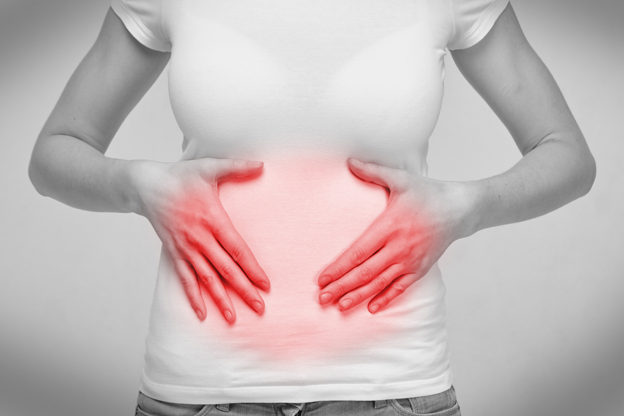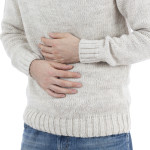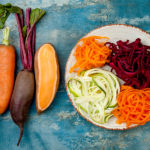By David Blyweiss, M.D., Advanced Natural Wellness
August 18, 2021
There are a lot of reasons you might feel bloated. Maybe you eat too fast or drink too many carbonated beverages. Certain foods might lead to bloating, like beans, cruciferous veggies and dairy products. Carbohydrates and sugars ferment into gas.
Any of these can lead to that uncomfortable bloated and distended feeling in your abdomen.
But if you frequently experience gas, bloating, abdominal cramping and diarrhea or constipation, it may be something more serious.
For the past 15 to 20 years, we’ve seen a lot of people get diagnosed with SIBO. That’s small intestinal bacterial overgrowth. Those bacteria aren’t supposed to be in the small intestine. They’re supposed to be in your large intestine and your colon.
Open your arteries, improve blood flow for a new health miracle...
Did you know your circulatory system has over 60,000 miles of arteries, veins and other blood vessels, if stretched end to end?
But as you age, your blood vessels undergo changes, which may cause them to stiffen, thicken and get clogged.
GOOD NEWS! Doctors have now identified a “Miracle Molecule” inside your arteries that helps OPEN your arteries and IMPROVE blood flow.
It’s what Dr. Valentin Fuster calls it, "One of the most important discoveries in the history of cardiovascular medicine."To you, that means...
- Healthy blood pressure
- Sharper mind and memory
- Skyrocketing energy and muscular strength
- Increased pleasure and passion in the bedroom
- Improved circulation to every cell and organ in your body
Go here to discover a new natural way to significantly boost the levels of this miracle molecule in YOUR body NOW!
Now, when you go to a regular doc for this problem he’ll say “Oh, we’ll give you rifaximin and it’ll get rid of it. And I’ll give you a refill because if it comes back, you can use it again.”
So you take the rifaximin and the symptoms go away. But then it comes back in three weeks, four weeks or six weeks. You can take the antibiotic again. And it will work again. Except the problem is that the colonic bacteria are still tracking up toward the small intestine and colonizing there.
This is classically caused by a weak ileocecal valve. This is the valve that stops bacteria from the colon going into the ileum and the rest of the small intestine. The valve should have a tight fit to stop bacteria from the colonic poop from getting into the small intestine and growing there.
Well, unless you do something to tighten up that ileocecal valve, you’re going to get SIBO over and over again.
The World's Quickest Solution for Ending Prostate and Urinary Misery
This has recently been revealed to be one of the only real breakthroughs in prostate health.
The seeds of a strange fruit (sometimes called "Chinese Apples") hold powerful phytonutrients that are a revolution in prostate health.
In fact, UCLA and Veterans Administration research have now proved this to be true.
Not only that, but it may be the worlds quickest solution for ending prostate misery.
Simply stated, these phytonutrients represent a huge step beyond beta sitosterol, saw palmetto, and other phytosterols alone.
Simply click HERE if you want to have fast prostate relief...restful, uninterrupted sleep...no more constant "urges to go"...enhanced virility...and optimal prostate support for life.
Exercise for Your Ileocecal Valve
The vagus nerve is a key part of your parasympathetic “rest and digest” nervous system. It stimulates and regulates the organs in your digestive tract and controls the action of your ileocecal valve. When you have poor vagal nerve function, it can result in SIBO.
So what you want to do is strengthen your vagus nerve with vagal nerve exercises.
The ones I like best are the vocal stimulation exercises. Since the vagus nerve is connected to the vocal cords, things like humming, singing, chanting and gargling will strengthen it.
Hum loudly all day long. Sing your way through the day. Or gargle loudly with water. Repeating the “om” chant is great too.
Or you can try this. Take a tongue depressor or spoon and press it lightly beginning at the front of your tongue and slowly itching back towards your uvula. That’s the thing you see hanging in the back of your throat. Don’t apply so much pressure to make you want to vomit, you just want to stimulate a gag reflex. This is probably the best way to strengthen your vagus nerve to better control the action of your ileocecal valve.
Watch what you Eat
When it comes to SIBO, starchy carbs are your biggest enemy. Those bad bacteria in your intestines love munching on carbs. But they ferment them into gas. They are going to make methane gas and hydrogen gas. Then, the hydrogen is going to feed the bacteria that make methane, leading to even more gas production.
This is what leads to that gassy, crampy, bloated and distended feeling in your abdomen. It’s really a pain.
If you cut out the starchy carbs, you’ll end up with much less fermentation and gas. So the idea is to starve the bacteria of their food source.
- I don’t recommend eating grains in the first place. They’re inflammatory. But they are also highly fermentable. With SIBO it becomes very important to avoid them. Some grain foods you want to avoid include breads, cereal, pasta and rice.
- Lactose, also known as milk sugar, is a fermentable carbohydrate. It’s found in dairy products. It’s not really good for anyone, but when it comes to SIBO, it’s definitely not going to “do your body good”.
- While I generally recommend everyone eat a wide variety of fruits, vegetables and beans, there are some that just won’t work for people who have SIBO.
- Unfortunately, most beans are pretty starchy. That’s a shame, because they are so good for you. But while you’re suffering from SIBO, you should stay away from them.
- Starchy vegetables feed bad bacteria and should be restricted. A few that come to mind are potatoes, yams, and corn. That still leaves plenty of others for you to enjoy.
- The same goes for certain fruits. This includes apples, pears, peaches, nectarines and cherries are high in sugar-alcohols.
- And when it comes to sugar-alcohols, watch out for those sugar-free products! They frequently contain sugar-alcohols. Read labels for products that contain erythritol, glycerol, isomalt, lactitol, maltitol, mannitol, sorbitol or xylitol.
If you can stay away from these foods, you will cut off the food chain to those bad bacteria. And make sure to start strengthening your vagus nerve to help prevent more bad bacteria from entering your small intestine.
SOURCES:
Miller LS, Vegesna AK, Sampath AM, Prabhu S, Kotapati SK, Makipour K. Ileocecal valve dysfunction in small intestinal bacterial overgrowth: a pilot study. World J Gastroenterol. 2012;18(46):6801-6808.
Roland BC, Ciarleglio MM, Clarke JO, Semler JR, Tomakin E, Mullin GE, Pasricha PJ. Low ileocecal valve pressure is significantly associated with small intestinal bacterial overgrowth (SIBO). Dig Dis Sci. 2014 Jun;59(6):1269-77.
Kalyani BG, Venkatasubramanian G, Arasappa R, et al. Neurohemodynamic correlates of ‘OM’ chanting: A pilot functional magnetic resonance imaging study. Int J Yoga. 2011;4(1):3-6. doi:10.4103/0973-6131.78171







